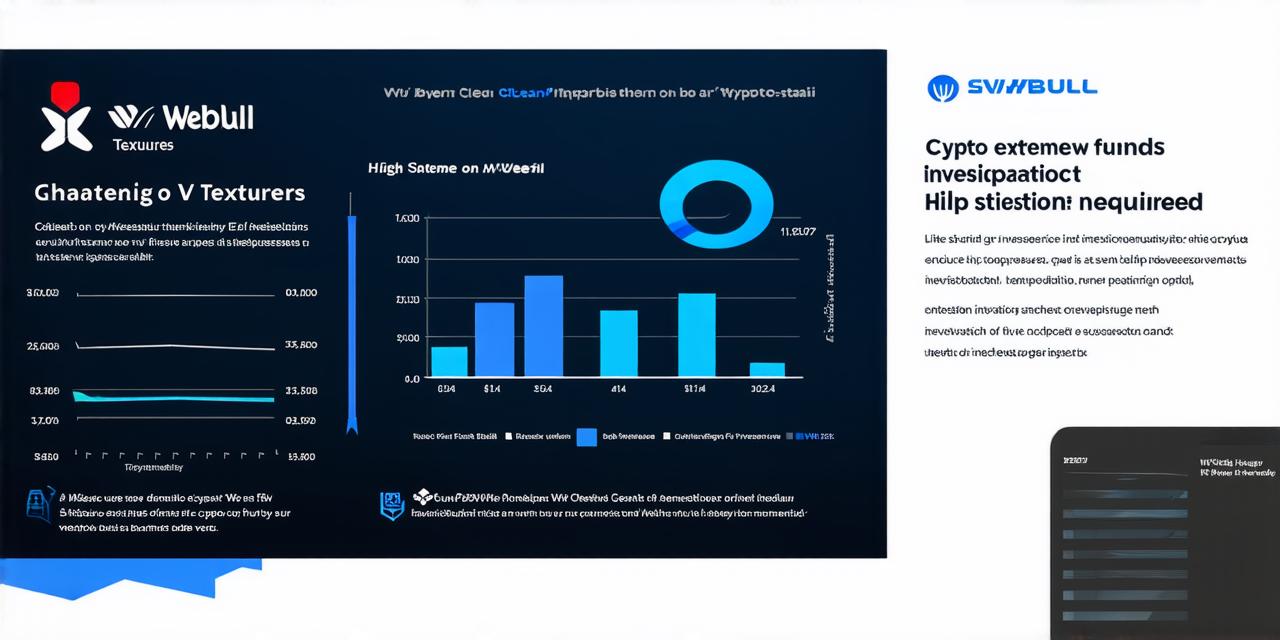Understanding the Risks of Trading Cryptocurrencies on Webull
Webull is a popular online brokerage platform that allows users to trade various financial instruments, including cryptocurrencies. However, like any other investment platform, it is not immune to technical glitches and system failures that can result in the loss of funds.
Before diving into the specific issues that developers may encounter when trading cryptocurrencies on Webull, it is essential to understand the inherent risks involved in this type of investment. Cryptocurrency markets are highly volatile and subject to sudden price fluctuations that can result in significant gains or losses.
Additionally, these markets are still relatively new and lack the same level of regulation as traditional financial markets, which makes them more susceptible to fraud, hacking, and other forms of security breaches.
One of the biggest risks associated with trading cryptocurrencies on Webull is the potential for system failures or technical glitches that can result in the loss of funds. These issues can occur due to various reasons, such as server overload, software bugs, or human error.
Common Issues Faced by Crypto Developers on Webull
Now that we have a better understanding of the risks associated with trading cryptocurrencies on Webull let’s explore some common issues that crypto developers may encounter when using this platform.
1. Account Locks and Suspensions
One of the most common issues faced by crypto developers on Webull is account locks or suspensions. These occur when the platform suspects that the user has engaged in fraudulent activity, such as insider trading or market manipulation.
While these measures are designed to prevent illegal activity and protect users’ funds, they can also result in legitimate traders being unfairly targeted.
To avoid account locks or suspensions, developers should ensure that they comply with all applicable regulations and guidelines when trading on Webull. They should also use strong passwords, enable two-factor authentication, and regularly monitor their accounts for any unusual activity.
2. Slippage and Price Fluctuations
Another issue that crypto developers may encounter on Webull is slippage and price fluctuations. These occur when there is a significant difference between the price at which an order is placed and the price at which it is executed.
Interesting:
This can happen due to various reasons, such as high trading volume or sudden changes in market sentiment
To minimize the impact of slippage and price fluctuations, developers should use limit orders rather than market orders when placing trades. They should also be prepared for sudden price changes and have a clear exit strategy in place to minimize their losses.
3. Technical Glitches and System Failures
As mentioned earlier, technical glitches and system failures are common issues that can result in the loss of funds on Webull. These issues can occur due to various reasons, such as server overload, software bugs, or human error.

To mitigate these risks, developers should regularly monitor their accounts for any unusual activity and be prepared to take action if they notice any issues.
In addition, developers should use multiple exchanges and trading platforms to diversify their investments and minimize their exposure to any one platform. They should also have a backup plan in place to transfer their funds to another exchange or platform if Webull experiences system failures or technical glitches.
4. Lack of Regulation and Security
Finally, one of the biggest challenges faced by crypto developers when trading on Webull is the lack of regulation and security in the cryptocurrency market. These issues make it more susceptible to fraud, hacking, and other forms of security breaches.
To mitigate these risks, developers should only trade on reputable exchanges and platforms that have a proven track record of security and compliance with applicable regulations.
In addition, developers should use strong passwords, enable two-factor authentication, and regularly monitor their accounts for any unusual activity. They should also be prepared to take action if they notice any suspicious activity or security breaches.


